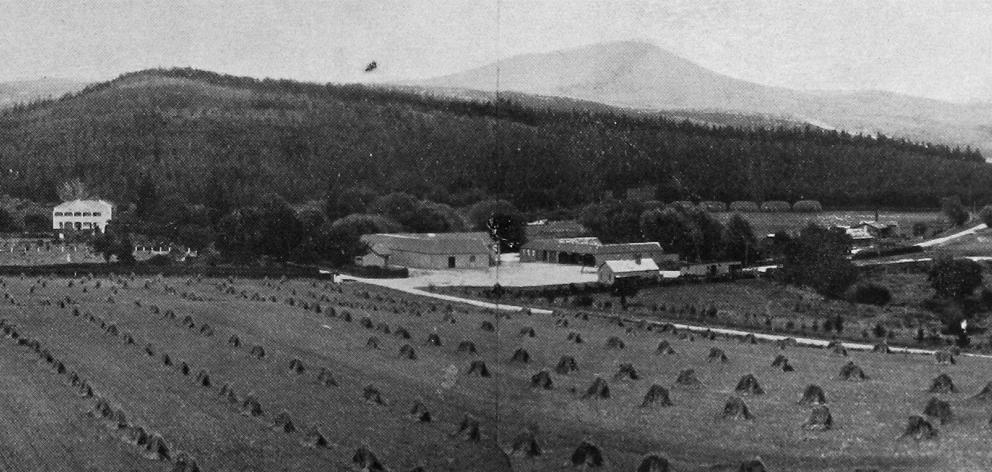
As she lay at the Birch street wharf on Thursday, her funnel and deck fittings were thickly coated with salt, left by the heavy spray which enveloped the ship. The Stella, carrying a party of shearers and a quantity of stores, had a fine weather passage until she came in the vicinity of the Auckland group, when she was struck by a heavy gale from the north-west. By the time she reached Enderby Island on the Saturday evening, the gale was raging with hurricane force, with a sweeping cross sea. However, Captain M’Bride managed to keep the vessel to her course, and run her before the gale, but the thickness of the weather prevented any sight of the Campbells. The gale increased on the following day, and it was found necessary to heave her to on Sunday night. Huge seas were then pounding the vessel aft, the force of the waves as they dashed over the rail lifting the heavy engine room skylights, and a fair amount of water consequently found its way into the engine room and stokehold. The engineers and stokehold hands had a hazardous time, and were in danger of sustaining broken limbs, as the ship constantly staggered beneath the big seas which pounded on board. The vessel remained hove-to for some time, and as the gale showed no signs of abating, and it being impossible to pick up the Campbell Islands, Captain M’Bride decided to return to Dunedin. The return journey was commenced at 4pm on Tuesday, and the ship was buffeted by a strong westerly gale for several hours. The Stella again shipped very heavy seas, and in order to steady her a staysail was set, but this shortly afterwards was blown to pieces by the force of the wind. It is very probable that the vessel actually got within a mile or two of the islands, and this is borne out by her timetable on the return journey, but the sun and stars were totally obscured by the heavy atmosphere for four days, and steering by dead reckoning to the little island in the midst of the southern sea is not the easiest of navigating feats.
Manufacturing developments
One of the British manufacturing developments delayed by the war was the production of a new type of sewing machine. Already, however, large numbers of these British-designed and British-built machines are on the market. A still more notable development is the mass production of typewriting machines by more than one British firm. It is expected that the appearance of this supply will have a very marked effect on markets for these machines in all parts of the world.
Business honesty
A very striking example of business honesty, disclosing a highly developed degree of commercial morality on the part of a retailer of tobacco and cigarettes, was experienced by a young man in this city the other day. On proffering the money for a packet of cigarettes the customer was greatly surprised when the shopman handed him back his money with the remark: "You don’t owe me anything, because some weeks ago, when making a purchase here, you went away without your change." — ODT, 3.4.1920.












